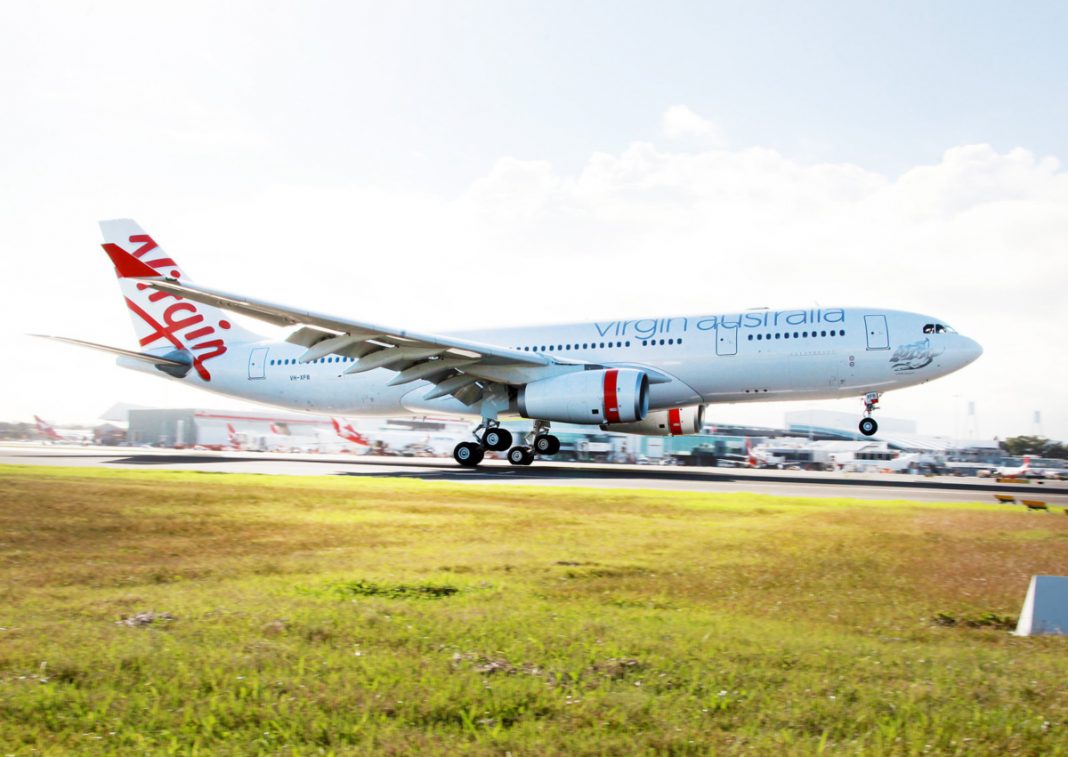This week, Virgin Australia outlined its plans for the future. The recently sold airline is keen to get back to business. The new Virgin Australia will have many similarities to the old Virgin Australia. But there will also be some differences. Notably, Virgin Australia will revert to an all Boeing 737 fleet. Where will that leave the airline’s widebody fleet?

What to do with 11 surplus widebody planes?
Virgin Australia has five Boeing 777-300ERs and six Airbus A330-200. The airline deployed the planes on long-haul international routes and selected transcontinental routes between Australia’s east coast and Perth.
Virgin Australia leased all six A330s and one Boeing 777. Following yesterday’s announcement, some lessors have already indicated they will move to take back their planes and begin re-marketing them.
The fate of the A330 fleet does not come as a surprise. But the announcement that Virgin Australia would discontinue using the 777s did raise some eyebrows. There was an argument in some quarters that the planes could be retained and kept on the transcontinental routes.
While Virgin Australia can remove the leased widebodies from its fleet quickly enough, offloading the four owned Boeing 777s may prove a more laborious task. The four Boeings face an uncertain fate – they could be resold, stored, used for parts, or scrapped.
Store the planes and keep bleeding cash
According to a report by the BBC, approximately 14,000 planes (or more than two-thirds of the world’s aviation fleet), was sitting idle in April. Those numbers have since reduced, but more than one-third of the world’s aviation fleet remains grounded. Potential buyers are spoilt for choice. This drives down prices and increases the likelihood an airline will be paying storage fees for an extended time.

Storing aircraft costs money. That’s something a lean and profit-orientated Virgin Australia is keen to avoid. The price of aircraft storage varies. If Virgin Australia is content to let their 777s rust away unmaintained in the sand off a lonely potholed runway somewhere, the outgoings will be minimal.
But if the airline wants to keep those planes shipshape for possible resale or even to be used as parts, it will cost money to store and maintain the 777s at an appropriate facility. Virgin Australia could expect to pay around US$5000 per plane per month to keep the aircraft in a long term storage facility.
Spare parts market currently slow to non-existent
Until the travel downturn grounded planes, there was a relatively vibrant market in used plane parts. But with airlines busy culling their fleets, the used spare parts market became saturated with supply. At the other end of the equation, with fewer planes flying, the demand for spare parts decreased.
The market for used spare parts is very slow right now, and the prospects of Virgin Australia making a fast quid from breaking down and selling parts from their 777s are slight.

On the bright side, if Virgin Australia is prepared to sit out the travel downturn and pay to keep the planes maintained and stored, the demand for used aircraft and their parts should jump. Why? Flights will resume, but revenue starved airlines will be desperate to conserve what cash they have left. Many airlines will eschew expensive factory fresh products for less expensive, well maintained used planes and parts.
Scrapping an unpalatable option for several reasons
The most cost-effective short term scenario may be to scrape the planes. But even this can be a less than desirable outcome. The four Boeings have an average age of less than 11 years, so it would be a terrible waste of perfectly good planes. Scrapping the four 777s may get them off Virgin Australia’s books in the short term, but it’s not a great outcome, financial or otherwise.
“There is some element of precious metals in engines which has some value. But in many cases today, the scrap value of the aircraft is minimal compared to the cost of scrapping, particularly given environmental laws,” Rob Morris, head of consultancy at Cirium, told the BBC.
“Hence, many obsolete planes may remain in storage for a prolonged period.”
Like airlines everywhere, the freshly invigorated Virgin Australia faces some challenges managing its surplus aircraft. The airline has choices regarding what to do with its four Boeing 777s. But the best option, a fast sale, is the least likely to occur anytime soon.
[ad_2]
Source link


